Invited Keynote Speakers
- Marina Lévy – Physical and biogeochemical modeling at the sub-mesoscale
- Daniel Odermatt – The future of Water Quality from Space
- Cara Wilson – Remote Sensing and Fisheries
- Marcel Babin – Impact of Climate Change on Polar Ecology
- Kenneth J. Voss – In-situ sensors (MOBY past, current and future)
- Sung Yong Kim – Research and applications using sub-mesoscale GOCI data
- Stuart Phinn – Collaborative earth-observation infrastructure for coastal and coral reef monitoring and management
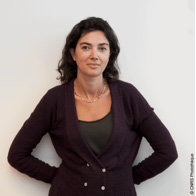
Marina Lévy
Marina Lévy is head of the Bio-Physical Interactions group at the Oceanography and Climatology Department (LOCEAN) of University Pierre et Marie Curie (UPMC), in Paris, France. After graduating from the French Ecole Polytechnique, she prepared her PhD thesis on the oceanic carbon cycle in the Mediterranean Sea at UPMC. In 1998, she worked under a post-doctoral fellow-ship at the Lamont-Doherty Earth Observatory of Columbia University, New-York, and obtained, in 1999, a permanent position at CNRS. Her research interests are the study of the interactions between ocean physics, biogeochemistry, plankton, marine ecosystems and ecology, with a particular focus on the role of ocean turbulence, and with the final goal of being able to make better predictions for the future. Her approach combines numerical modeling, use of multi-satellite data and field observations. She was awarded the CNRS bronze medal in 2004 for her pioneering work on the interactions between sub-mesoscale physics and phytoplankton productivity.
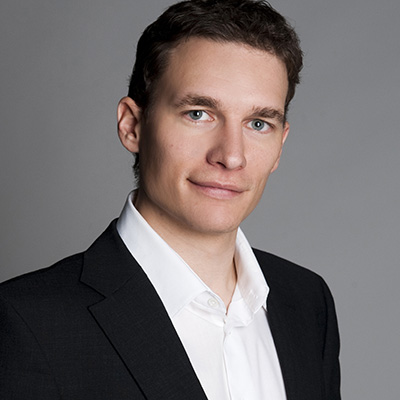
Daniel Odermatt
Daniel Odermatt is an expert in Earth Observation and on aquatic applications. He is the managing director of Odermatt & Brockmann GmbH in Zurich, Switzerland, and a scientific collaborator at the Swiss Federal Institute for Aquatic Science and Technology (Eawag). After completion of his PhD thesis on Spaceborne Inland Water Quality Monitoring at the University of Zurich in 2011, he assessed the benefits of Copernicus downstream services for authorities in Switzerland as head of the Swiss National Point of Contact for Satellite Images. He moved to a position as remote sensing expert at Brockmann Consult GmbH in Germany, funded by the European Marie Curie Industry Academy Partnership Program. He developed the scientific design, supervised the implementation and validated the first complete MERIS inland water quality product archive for several hundred lakes worldwide, which became available in early 2015 from Brockmann Consult on behalf of the European Space Agency. His ambitions are to contrast and structure the exorbitance of study-specific algorithms for optically complex waters developed in recent years, to advance suitable methods to operational applications, to improve the robustness of these applications and to foster their use in environmental monitoring programs and other surveys.
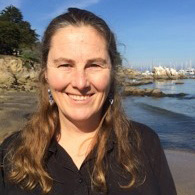
Cara Wilson
Cara Wilson is a satellite oceanographer for the Environmental Research Division (ERD) at NOAA’s Southwest Fisheries Science Center in Monterey CA and is the PI of the West Coast node of NOAA’s CoastWatch program which is housed at ERD. Her research interests are in using satellite data to examine bio-physical coupling in the surface ocean, with a particular focus on determining the biological and physical causes of the large chlorophyll blooms that often develop in late summer in the oligotrophic Pacific near 30°N. She received a Ph.D. in oceanography from Oregon State University in 1997, where she examined the physical dynamics of hydrothermal plumes. After getting her PhD she worked as the InterRidge Coordinator at the University Pierre et Marie Curie in Paris, France. Her introduction to remote sensing came with a post-doc at NASA’s Goddard Space Flight Center which involved analyzing TOPEX and SeaWiFS data. She joined NOAA in 2002 and is currently a member of NOAA’s ocean color working group, the IOCCG (International Ocean Colour Coordinating Group), and the International Affairs committee of PORSEC (Pan Ocean Remote Sensing Conference). In 2011 she served on the National Research Council’s Committee on Assessing Requirements for Sustained Ocean Color Research and Operations. In her free time she leads Sierra Club service trips.
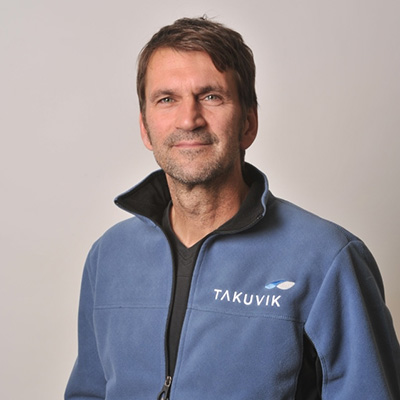
Marcel Babin
Marcel Babin is the Research Director, Takuvik Joint International Laboratory, Université Laval (Canada) and Centre National de la Recherche Scientifique (CNRS, France). He is an oceanographer with expertise in the areas of light propagation and light-matter interactions in the ocean. His research interests cover the study of fundamental light-driven processes in the ocean, variations in ocean primary production, monitoring of light-driven carbon fluxes from space using ocean colour remote sensing, and modelling of light-driven ocean processes and ecosystem interactions. While remote sensing and the related technical developments are central to his research program, his scientific objectives are motivated by fundamental questions on the impact of climate change on marine ecosystems, particularly the sensitive Arctic ecosystems.
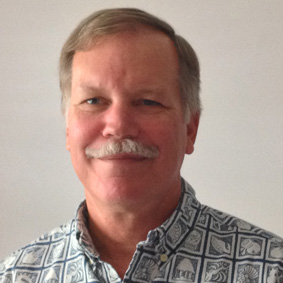
Kenneth J. Voss
Dr. Kenneth Voss is a Professor in the Physics Department at the University of Miami. His specialty is Ocean and Atmospheric Optics. He received his Ph. D. in Physics at Texas A&M University (1984), where he built an instrument to measure the polarized light scattering in seawater with Dr. Ed Fry. His post-doctoral experience was at Scripps Institution of Oceanography(SIO), with Mr. Ros Austin at the Visibility Laboratory. Here he worked on developing instrumentation to measure different aspects of the in-water light field. After the post-doctoral experience he continued at the Visibility Laboratory and the Institute of Marine Resources at SIO until moving to a faculty position at the University of Miami (1989). Since arriving at Miami he has been involved with remote sensing, through the SeaWiFS and MODIS projects, along with in-water, atmospheric optics, and instrumentation. In 2003 he was elected Fellow to the Optical Society of America. He is currently the PI for the MOBY project.
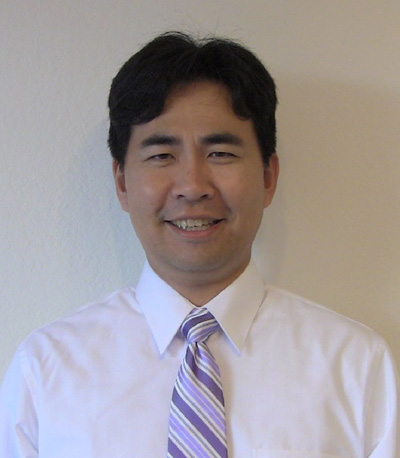
Sung Yong Kim
Sung Yong Kim is an Assistant Professor in the School of Mechanical Aerospace Systems Engineering at Korea Advanced Institute of Science and Technology (KAIST), Daejeon, Republic of Korea and the director of the Environmental Fluid Mechanics Laboratory at KAIST. He received B.S. degree in Naval Architecture and Ocean Engineering from Seoul National University, Seoul, Republic of Korea, in 1999 and Ph.D. degree in Applied Ocean Science from Scripps Institution of Oceanography, La Jolla, USA, in 2009. His present research interests are in the areas of coastal circulation, sub-mesoscale processes, statistical and dynamical data analysis, environmental parameterization, and operational coastal ocean observing system. He has served as a member of Technical Committee (MONITOR) in the North Pacific Marine Science Organization (PICES) since 2014. He is the recipient of the Young Frontier Research Scientists Award in the Korean Academy of Science and Technology in 2013 and the Young Scientist Award in the Korean Society of Oceanography in 2014.
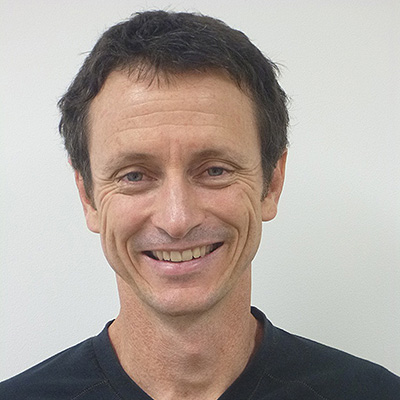
Stuart Phinn
Stuart Phinn’s research interests are in measuring and monitoring environmental changes using earth observation data and publishing/sharing ecosystem data. He is a professor of Geography at the University of Queensland where he teaches remote sensing and he has established and co-directs the Biophysical Remote Sensing Research Group, Joint Remote Sensing Research Program and Australian Earth Observation Coordination Group. Most recently he was the founding director of Australia’s Terrestrial Ecosystem Research Network and its Associate Science Director. He received his PhD from the University of California – Santa Barbara/San Diego State University in 1997. The majority of his work uses images collected from satellite and aircraft, in combination with field measurements, to map and monitor the Earth’s environments and how they are changing over time. A large part of this is in coastal and marine environments with C.Roelfsema. This work is done in collaboration with other environmental scientists, government environmental management agencies, NGO’s and private companies. He publishes extensively with his collaborators, and currently has 153 papers in refereed international journals, 1 book, and 11 book chapters. A large part of this work also involves training the next generation of scientists and managers who effectively use remote sensing, and has graduated 36 PhD students. A growing part of this work now focuses on national coordination of Earth observation activities and the collection, publishing and sharing of ecosystem data.

